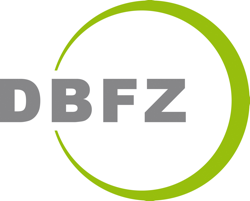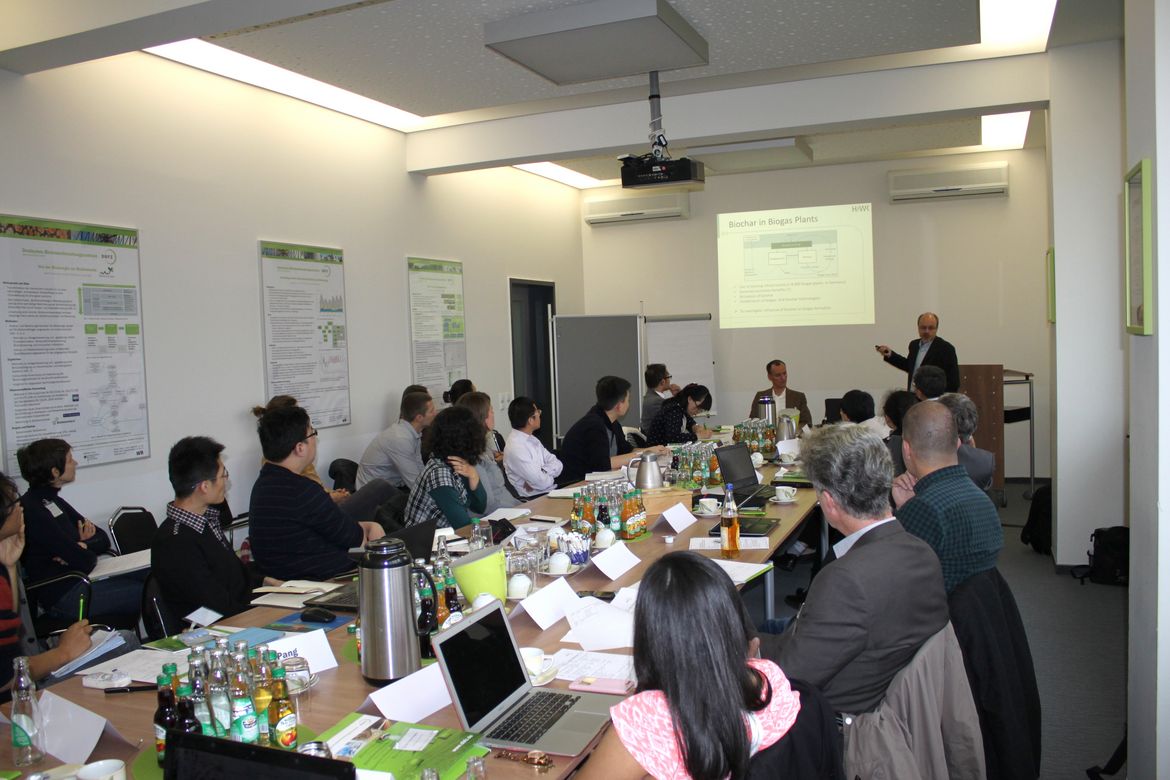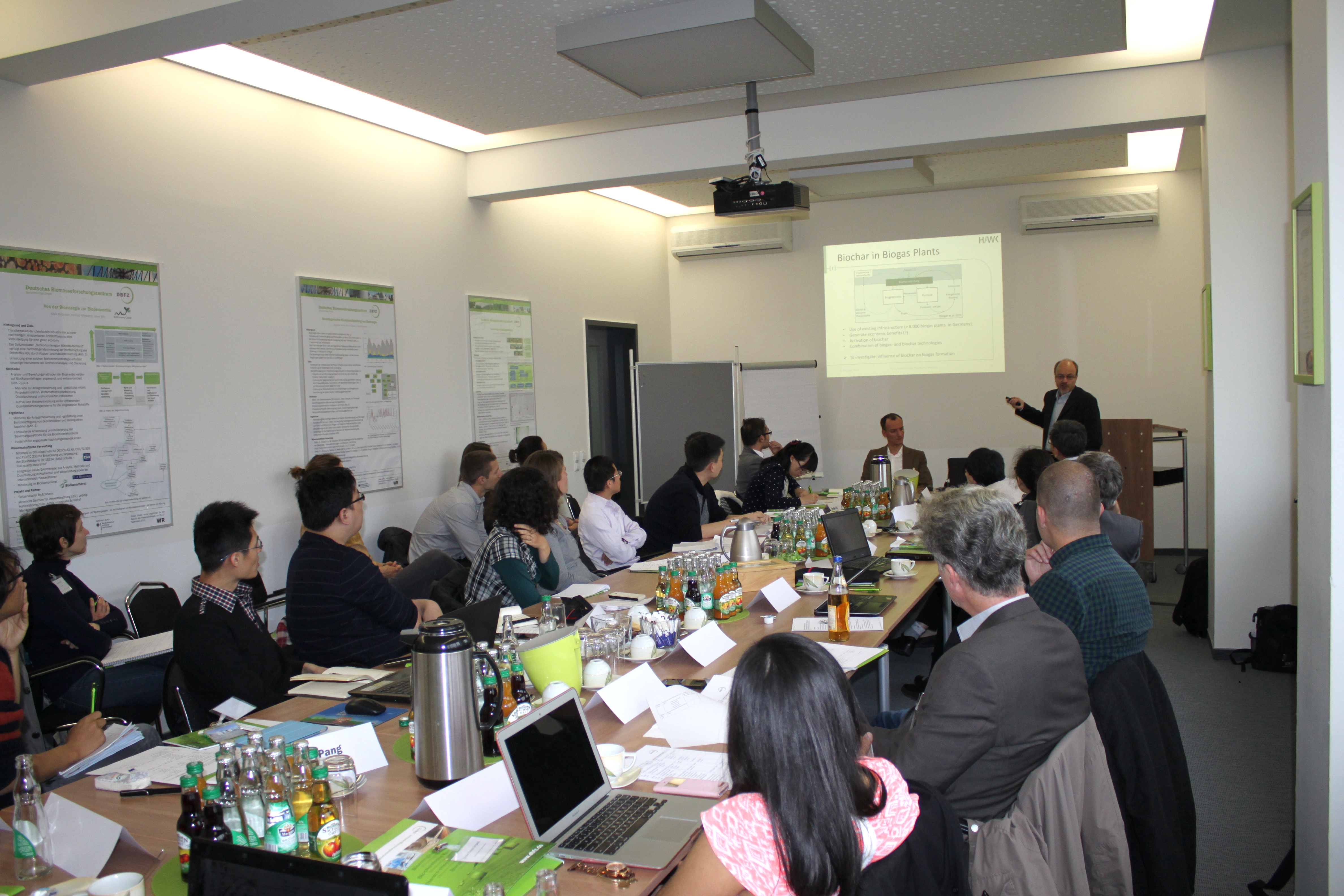DBFZ intensifies scientific exchange with Chinese top universities in the field of conversion of organic wastes and residues
Initiated by the DBFZ (German Biomass Research Center) and the University of Rostock, German and Chinese scientists participated in various scientific workshops, talks and excursions in Leipzig and Rostock during the Sino-German Summer School "Energetic and material use from biogenic waste and residues" from 12.-17.October 2015. The summer school offered the opportunity to discuss the status quo of research and develop future research ideas.
Beside the scientific lectures and workshops the 36 young scientists, graduate students and lectures from China and Germany visited demonstration and plant site of DBFZ project partners. The participants visited not only the HTC - and dry fermentation plant in Halle-Lochau but also the waste disposal centre (biogas plant, mechanical biological residual waste treatment and waste incineration plant) in the City of Rostock. Current and common R&D needs of both countries were identified and four concrete project ideas for joint research projects formulated. One example is the development of customized solutions for the disposal of restaurant and market waste to China. In addition, the mutual PhD student exchange should be intensified, so the positive result of the kick-off event.
"The 2015 summer school is a very good start for the networking with young Chinese scientists. The People's Republic of China is an enormous growing market in the area of energy and material use of biogenic waste. This is why it is important to us, to consolidate the already existing contact with scholars of major Chinese universities and to develop concrete joint projects. A continuation of the summer school is planned in China 2016", as to the DBFZ Coordinator for international knowledge and technology transfer and co-organizer, Dr. Sven Schaller. Prof. Dr. Pinjing He from Tongji University in Shanghai adds: "It is generally accepted that a functioning waste management should base the three pillars: reduction, reuse and recycling. The energetic and material recycling of waste and residues play a decisive role. For this purpose the summer school provided a good platform to form a sustainable cooperation network for the Chinese and German institutions in waste management".
Both the DBFZ and the University of Rostock maintain intensive contacts in China for a long time, in particular to the scientific partners of the China University of Petroleum Beijing (CUPB), the China Agricultural University (CAU) and Tongji University Shanghai. "I am very pleased that the DBFZ and the University of Rostock in China has established itself as a central German contact to develop scientifically sound and practice-ready solutions in the field of conversion of organic wastes and residues. China can improve its greenhouse gas balance through custom solutions at least 20% if these solutions are successfully implemented in practice", as Prof. Dr. Michael Nelles, Scientific Managing Director of the DBFZ and Head of the Waste Management and Material Flow Department at the University of Rostock.
Participating institutions of the summer school 2015:
DBFZ (German Biomass Research Centre), Helmholtz Centre for Environmental Research - UFZ, University of Rostock, University of Leipzig, University of Applied Sciences and Arts Göttingen (HAWK), University of Applied Sciences Lübeck, China University of petroleum (CUPB) Beijing, China Agricultural University (CAU), Tongji University Shanghai, C.A.R.E. biogas, Gicon GmbH, Stadtwerke Halle GmbH
Smart Bioenergy – innovations for a sustainable future
The DBFZ works as a central and independent thinker in the field of energy and material use of biomass on the question of how the limited available biomass resources can contribute to the existing and future energy system with sustainability and high efficiency. As part of the research the DBFZ identifies, develops, accompanies, evaluates and demonstrates the most promising fields of application for bioenergy and the especially positively outstanding examples together with partners from research, industry and public. With the scientific work of the DBFZ, the knowledge of the possibilities and limitations of energy and integrated material use of renewable raw materials in a biobased economy as a whole should be expanded and the outstanding position of the industrial location Germany in this sector permanently secured – www.dbfz.de/en.


